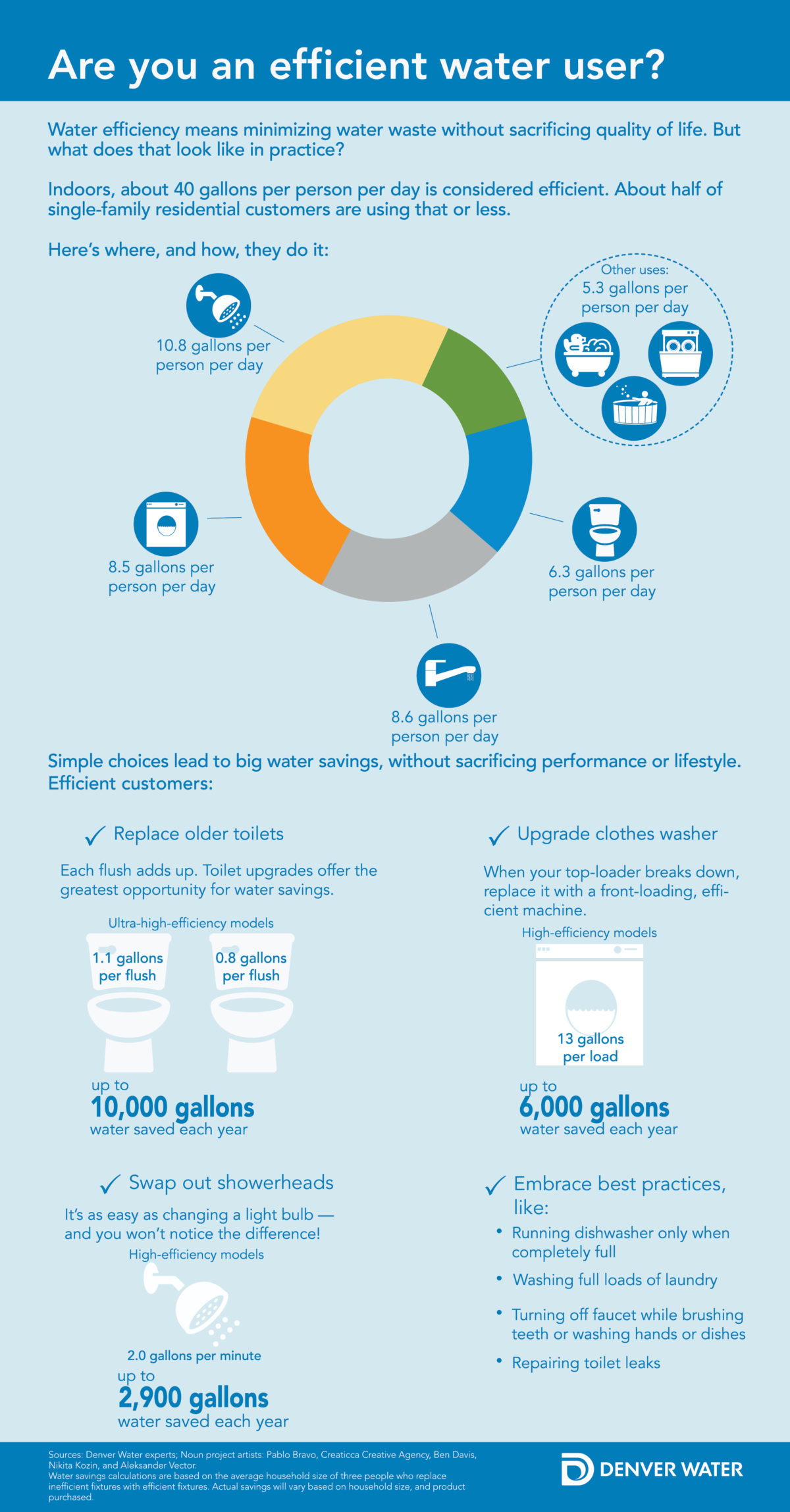
Efficiency is the new conservation
From bright orange billboards with missing letters to half-naked people sporting sandwich boards proclaiming “Use Only What You Need,” if you’ve lived in the Denver metro area over the past decade, chances are you came in touch with Denver Water’s popular ad campaign.
That campaign was part of Denver Water’s 10-year conservation plan that wrapped up in 2016, designed to capture water savings following the 2002 drought. And with conservation programs for every type of customer, the plan was a success. Customers have been meeting the city-wide reduction goal of 22 percent.
But that doesn’t mean we’re done. Denver Water will be introducing a new water efficiency plan in 2018, which provides a five-year roadmap to help ensure those savings are permanent, and to help customers understand not only how much water they use in their homes and businesses, but also how they can meet their individual water needs in the most efficient ways.
Here are three things you need to know about the plan:
- The next five years are about efficiency (not conservation and reduction).
The dictionary definition of efficient is being productive, without waste. Water-use efficiency is a relatively new model for water utilities.
“Traditional water conservation efforts have focused on water restrictions and reductions,” said Jeff Tejral, manager of conservation at Denver Water. “Efficiency focuses on actions that minimize water waste, without sacrificing quality of life, or livability.”
- Benchmarks for efficient indoor and outdoor efficient water use provide direction for customers.
Denver Water worked with a group of community stakeholders to develop voluntary efficiency targets. Together, they determined that 40 gallons per person per day is an efficient indoor water use benchmark— a goal that 49 percent of Denver Water single family residential customers currently achieve.
The plan also identifies a benchmark for outdoor water use of 12 gallons per square foot of landscape annually. Currently, 65 percent of single family residential customers are at or below this level.
These benchmarks will be used to help Denver Water work with customers who have the most potential to improve water efficiency by providing specific programs and recommendations.
- It’s personal.
According to Tejral, for a water efficiency plan to really work, everyone needs to know how much water they use and where they use it.
“Our hope through this shift in focus from conservation to efficiency is that customers will be able to have a much better understanding of the water they use, and as a result, be able to reduce the amount of water that’s wasted overall,” he said.
The Denver Board of Water Commissioners formally adopted the Water Efficiency Plan on Nov. 8, 2017. Outreach efforts to help customers understand where they are in relation to the benchmarks will begin in 2018.


